My dream is to go to the place (you know the one) where it all began. On a starry night… on a starry night… when it all began. You said hold me… hold me… hold me. Don’t be afraid. Don’t be afraid. We’re with the stars. – Rebekah Del Rio, “No Stars”
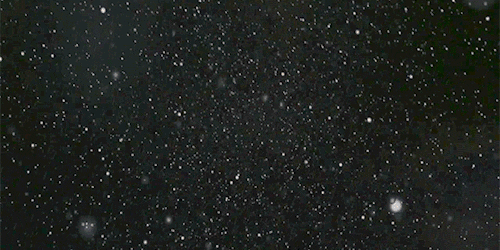
Part 10 ends with Rebekah Del Rio singing “No Stars” — a song that references a starry night where it all began, but to which one cannot return. It is a quintessential statement of the kind of anti-nostalgia Twin Peaks: The Return engaged in. This may be a return, but it is not a comeback. You can’t go home again.
What struck me most in rewatching Part 10 now is the way in which it is structured around the theme of betrayal. It is hard to say to what extent this applies when it comes to Richard Horne attacking Miriam, but they at least seem to know each other. Other examples are more straightforward, though, even if something like a continuum suggests itself. Steven assaults Becky in their trailer. Richard assaults his grandmother Sylvia. Tony Sinclair goes along with Duncan Todd’s plan and tries to get a hit taken out on his buddy Dougie. Chad betrays the Sheriff by stealing Miriam’s letter from the mail. And, this is the episode in which we learn with a degree of certainty that Diane has betrayed the FBI by passing information to Mr. C.
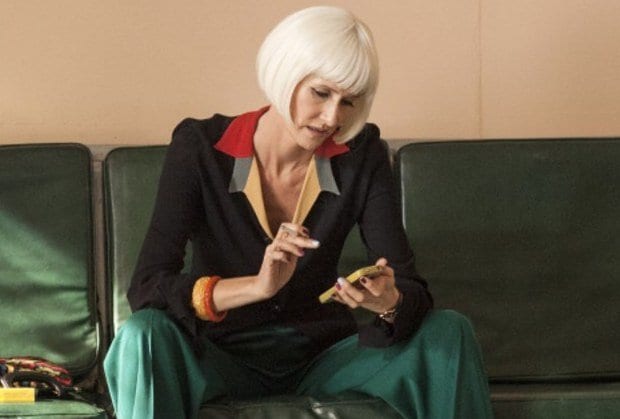
I resisted that last one for as long, or longer, than anyone I know a year ago. We talked about it in our podcast. And, for what it’s worth, I have refrained from listening to that before writing this. I wonder to what extent the things I say now might mirror the things I said then. The long and short is that I loved Diane from the moment we met her, and never stopped doing so. This led me to, for example, put a lot of weight on the differences between the “around the dinner table the conversation is lively” message that Mr. C sent, and the “AROUND THE DINNER TABLE, THE CONVERSATION IS LIVELY.” message that Diane received.
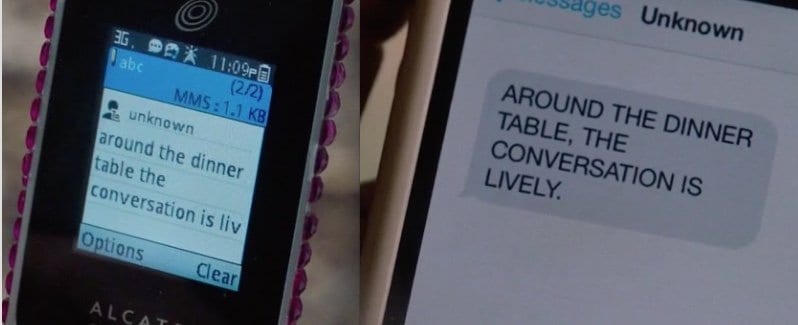
What I have to say about Diane now, though, will certainly be a bit different, now that we know the whole story, or as whole of a story as we are going to get. I can no longer try to question whether Diane was really working with Mr. C, or under his control. I have moved instead towards a more thematic reading of this tulpa as representing a certain thought about trauma, which would frame this plot arc in terms of a thought about gaslighting. I’m still on team Diane.
What’s this bit about Mexico, though? This strikes me as a question that got lost amidst all of the other questions we were led to think about. Last we saw Mr. C, he had gotten out of prison with that f*cker Ray, gotten shot, and proceeded to walk to meet up with Chantal and Hutch. Every indication is that all of this occurred in South Dakota, or maybe Montana. It’s hard to be sure about the precise location. But it is pretty easy to be sure that it was not Mexico.
Before Albert arrives to inform Cole about Diane’s text messages, we see Gordon drawing what looks like an arm reaching for a dog with antlers. Some have suggested a similarity between this image and that of BOB’s arm reaching out from the Lodge at Glastonbury Grove, but I have to admit this still strikes me as more of an enigma than anything else.
When Cole opens the door to his hotel room, he sees Laura Palmer. To be precise, he sees the image of Laura when she arrives at Donna’s house after discovering that it is her father that has been raping her. But is this image inverted?
Gordon, are you my best friend?
Gordon and Albert may not be brothers, but they are close. Recall that when Denise asked Cole if Albert was going with him to South Dakota, he replied by asking, “Do birds fly?” They have been working together for decades now, and it strikes me how good of a job Lynch does at portraying how their relationship has settled in. Albert looks over his shoulder after noting Cole’s odd expression when he answers the door, but he doesn’t ask about it. Gordon will tell him about it if it’s worth telling. The Chief is an odd fellow; just roll with it.
But a lot of Part 10 is about brothers. The Fuscos only appear in news footage of the arrest of Ike, but the Mitchums take center stage. We first see them as Candie desperately seeks to swat a fly, which ultimately results in her hitting Rodney across the face with a TV remote.
Is this another betrayal? Candie certainly seems to experience it as such, as she cries inconsolably, wondering how they could ever love her again. She won’t even accept the offer of a martini. How does this relate to her disposition the next time we see her, though, in the casino (when Anthony comes to visit)? You know, when she talks about how they will be in the version layer?
Anthony tells the Mitchums that they have an enemy in Douglas Jones, in a way that is so ham-fisted it almost surely would not have worked had they not already been primed to accept this information. But, given that they have been primed by the Mr. Jackpots affair, and so on, they believe what Tony is saying so readily he himself seems surprised.
Then, the Mitchums are at home. Rodney says he now knows how Brando felt, which I take to be a reference to The Godfather, though I continue to feel like I should be able to be more specific than that. Then the two say, almost finishing each other’s sentences, “You f*ck us once; shame on us. You f*ck us twice, shame on you: you’re dead.” These two are brothers. They are on the same page. And, it is striking to me in revisiting it now just how terrible they seem. I recall thinking last year that Candie was a victim of abuse, perhaps suffering from Stockholm syndrome, and so on. To what extent should that feeling be altered by what comes later, and to what extent was it on the mark?
Speaking of abuse, the scene in this episode that remains the most powerful in my mind is that wherein Richard Horne attacks his grandmother Sylvia, while Johnny looks on, helplessly tied to a chair. I maintain that what he wails is “Mom” despite the fact that the captions merely say “[groans]” — it is a heart-wrenching scene that is filled with a strange power through its brutality. “Why do you have to make something so simple so f*cking difficult?!” Richard asks his crying grandmother as he heads out the door. One can imagine a similar question being leveled at Lynch and Frost.
Besides being powerful in its own right, this scene manages to refer to several other things at once. The face on Johnny’s bear is a clear allusion to Lynch’s own Dumbland series, and the music that plays as Richard abuses his grandma was previously used in One Flew Over the Cuckoo’s Nest, in a scene with some interesting resonances to Twin Peaks. For me, at least, it further brought to mind the famous assault in A Clockwork Orange, which is accompanied by an amateur rendition of “Singin’ in the Rain.” F*ck Gene Kelly, indeed.
The last scene of the episode (before Del Rio’s song) is Margaret Lanterman talking to Hawk again. This is where she tells him that the Truman brothers are both true men, and that the others are also his brothers. This episode is not just about brothers in a literal, or biological sense, that is, but about brothers more figuratively. Gordon and Albert are brothers, for example. Who are Hawk’s brothers? All of those who share the path with him: probably Frank and Bobby; certainly Harry and Andy. And Cooper?
Margaret tells Hawk that “Laura is the One,” repeating a line from the Log Lady intro to the pilot. Here is the full text:
- Welcome to Twin Peaks. My name is Margaret Lanterman. I live in Twin Peaks. I am known as the Log Lady. There is a story behind that. There are many stories in Twin Peaks. Some of them are sad, some funny. Some of them are stories of madness, of violence. Some are ordinary. Yet they all have about them a sense of mystery – the mystery of life.
- Sometimes, the mystery of death. The mystery of the woods. The woods surrounding Twin Peaks.
- To introduce this story, let me just say it encompasses the all – it is beyond the “fire”, though few would know that meaning. It is a story of many, but begins with one – and I knew her.
- The one leading to the many is Laura Palmer. Laura is the one
And the full text of what she says here in Part 10:
Hawk. Electricity is humming. You hear it in the mountains and rivers. You see it dance among the seas and stars and glowing around the moon, but in these days the glow is dying. What will be in the darkness that remains? The Truman brothers are both true men. They are your brothers. And the others, the good ones who had been with you…Now the circle is almost complete. Watch and listen to the dream of time and space. It all comes out now, flowing like a river. That which is and is not. Hawk. Laura is the one.
Take that as you will, but it seems important to me; or, at least, as something interesting to think about!
More Things that Happened
- This is also the episode wherein DougieCooper and Janey-E have sex, with the latter yelling out “Dougie!!” in a way that breaks all rules of decorum in relation to the fact that they have a young son who can hear — and is, in fact, startled awake — by this. I don’t have a whole lot to say about this, other than that I love to watch Kyle MacLachlan as DougieCoop eat chocolate cake, and find that scene to be utterly hilarious.
- We get a reprise of Dr. Amp doing the vamp for freedom. A lot of this is a pure repetition of what we saw in Part 5; which strikes me as a criticism of this form of political commentary. It’s not that what Dr. Amp says is wrong, but that it risks a certain vacuity. One can tune in every week, or maybe even every night, to hear one’s favorite pundit rail against the way things are going. The f*cks are, indeed, at it again, but what is the value in this kind of discourse, with its repetitious nature? There is not information here, after all; it’s just Jacoby ranting and at best offering a certain kind of catharsis through solidarity. I by no means distance myself from the appeal of such in the real world, but I do take it to be a comment on the existing state of political discourse. Here’s a rant; now buy a purely symbolic shovel.
- Chad takes a letter from the mail that is addressed to Miriam Hodges. The credits for the episode, however, list Miriam’s last name as Sullivan. This could have been a mistake, and I think I might have even read something that gave some credence to the notion that it was a mistake, but that is boring. I find it more interesting to think about timequakes, and/or the idea that Cooper broke time.


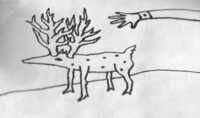
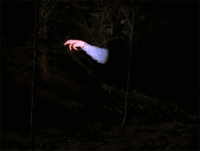
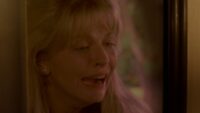
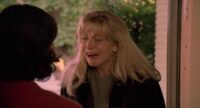
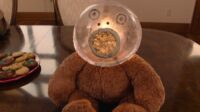
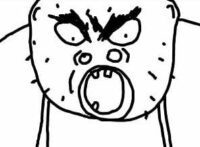
Great writeup, I just rewatched this last night! I remembered to check if the Bluray still showed Gordon’s door “glitching” as Tammy approached. (yup) Were there any good theories or consensus on whether this was intentional? Or what it could signify if so?? (A small detail in a sea of things to think about, but it intrigued me on first watch and rewatch)
I don’t know about consensus, but I am tempted to tie it into ideas I have about splintered time, or multiple realities, that sort of thing. I went into this in some detail in the one BLWL I did about whether Coop should have gone to 1989. So, I guess I think it was intentional, at least.